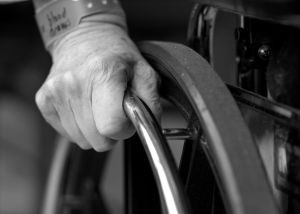 Permanent Total Disability (PTD) — defined in section 440.15(1), Florida Statutes — is an indemnity (monetary) benefit sometimes available under Florida’s Workers’ Compensation System to the state’s most severely injured workers. Unless the worker has suffered an injury of the type as set forth in 440.15(1)(b), commonly referred to as a “catastrophic injury,” he or she must wait to reach the date of maximum medical improvement (MMI) before becoming eligible for PTD. In some cases, this can take a year or longer. Moreover, where multiple injuries are involved, the worker must first reach MMI from each injury.
Permanent Total Disability (PTD) — defined in section 440.15(1), Florida Statutes — is an indemnity (monetary) benefit sometimes available under Florida’s Workers’ Compensation System to the state’s most severely injured workers. Unless the worker has suffered an injury of the type as set forth in 440.15(1)(b), commonly referred to as a “catastrophic injury,” he or she must wait to reach the date of maximum medical improvement (MMI) before becoming eligible for PTD. In some cases, this can take a year or longer. Moreover, where multiple injuries are involved, the worker must first reach MMI from each injury.
For employees who have suffered “catastrophic injuries,” MMI does not have to be reached to qualify for PTD benefits. According to 440.15(1)(b), “an injured employee is presumed to be permanently and totally disabled” upon sustaining a catastrophic injury. The presumption is rebuttable. To overcome the presumption, the employer or carrier must establish “that the employee is physically capable of engaging in at least sedentary employment within a 50-mile radius of the employee’s residence.” 440.15(1)(b).
In Temporary Labor Source v. E.H., 765 So.2d 757 (Fla. 1st DCA 2000), although the claimant had sustained a catastrophic injury, the Judge of Compensation Claims (JCC) refused to adjudicate the issue of PTD when the matter was addressed at trial. Relying upon medical expert testimony “that the use of a prosthetic device may increase Claimant’s ability and capacity for work,” the JCC reasoned that because the claimant had not reached MMI, PTD was not ripe for adjudication. The judgment was reversed on appeal.
The First DCA explained that when a claimant sustains a catastrophic injury, MMI does not have to be reached for PTD to be adjudicated. Once the claimant demonstrates a catastrophic injury, he or she is presumed to be PTD whether or not MMI has been reached. (For example, our firm represents a gentleman who sustained a catastrophic injury from falling from a roof. While he is expected to show improvement from his immediate post-accident condition, he will always have the catastrophic injury (paraplegia). Accordingly, we filed a claim for PTD benefits within weeks of the accident, while he remained in the hospital and well before he was expected to reach MMI.)
Once the presumption arises, the burden shifts to the Employer/Carrier to establish “that the employee is physically capable of engaging in at least sedentary employment within a 50-mile radius of the employee’s residence.” 440.15(1)(b). In Temporary Labor Source, the DCA held that the mere evidence of a prosthetic device improving the claimant’s “ability and capacity for work” did not come close to satisfying the E/C’s burden. PTD benefits were awarded.
Contact us at 305-758-4900 or by email (jgale@jeffgalelaw.com) to learn your legal rights.
Jeffrey P. Gale, P.A. is a South Florida based law firm committed to the judicial system and to representing and obtaining justice for individuals – the poor, the injured, the forgotten, the voiceless, the defenseless and the damned, and to protecting the rights of such people from corporate and government oppression. We do not represent government, corporations or large business interests.
While prompt resolution of your legal matter is our goal, our approach is fundamentally different. Our clients are “people” and not “cases” or “files.” We take the time to build a relationship with our clients, realizing that only through meaningful interaction can we best serve their needs. In this manner, we have been able to best help those requiring legal representation.
 Florida Injury Attorney Blawg
Florida Injury Attorney Blawg

